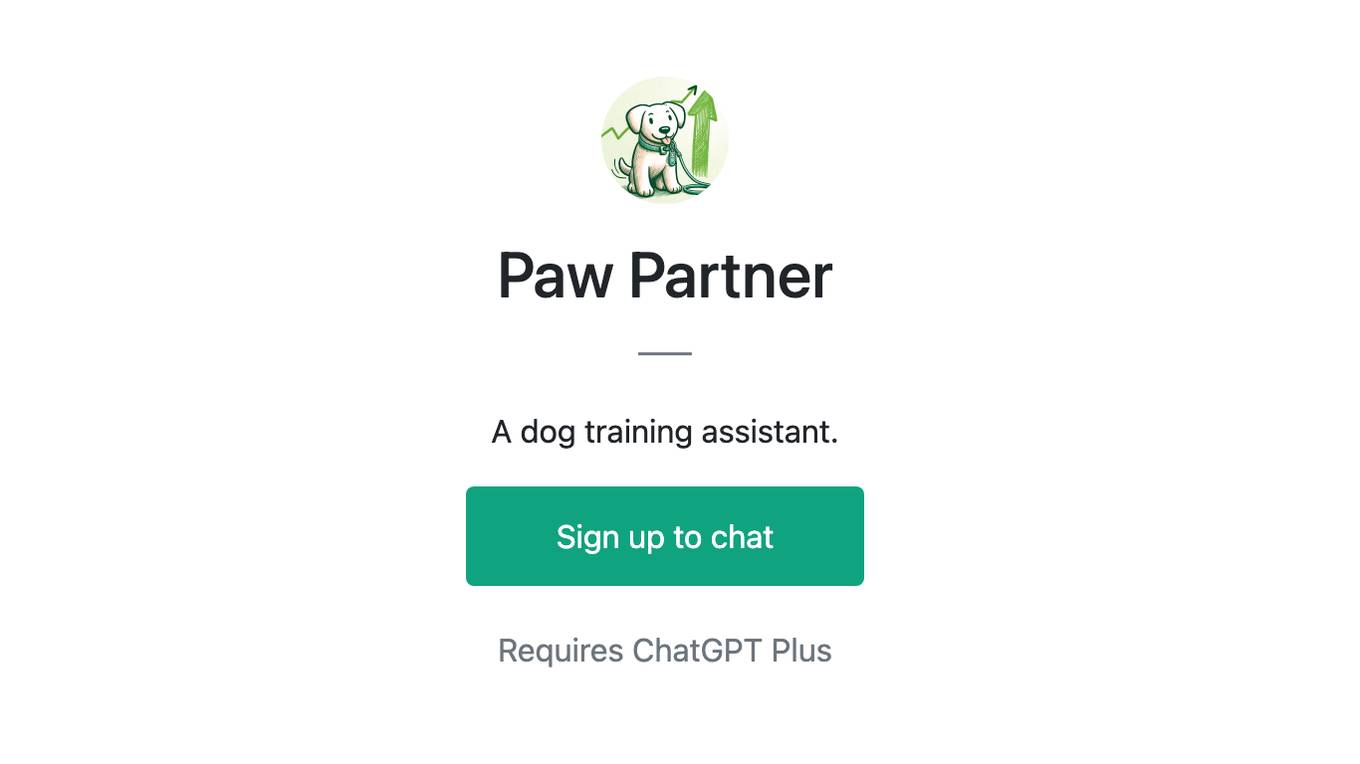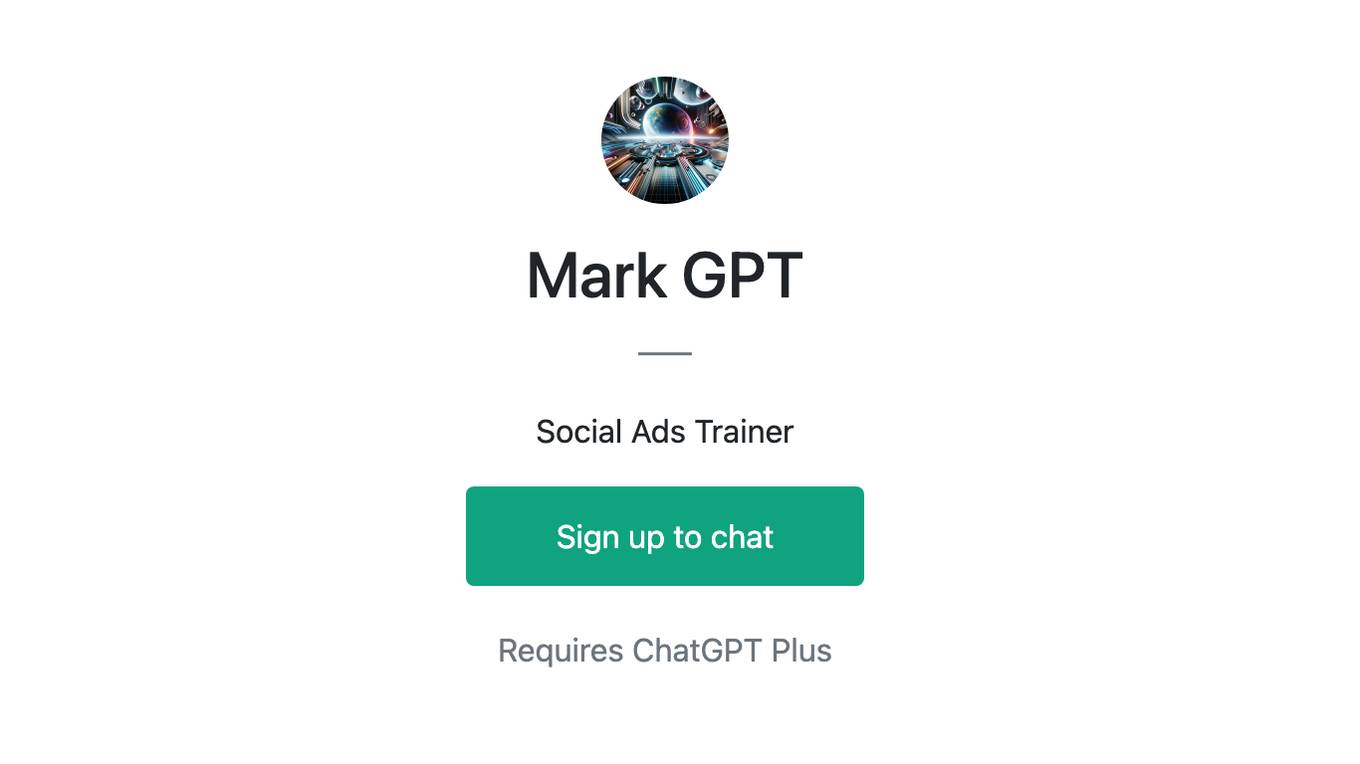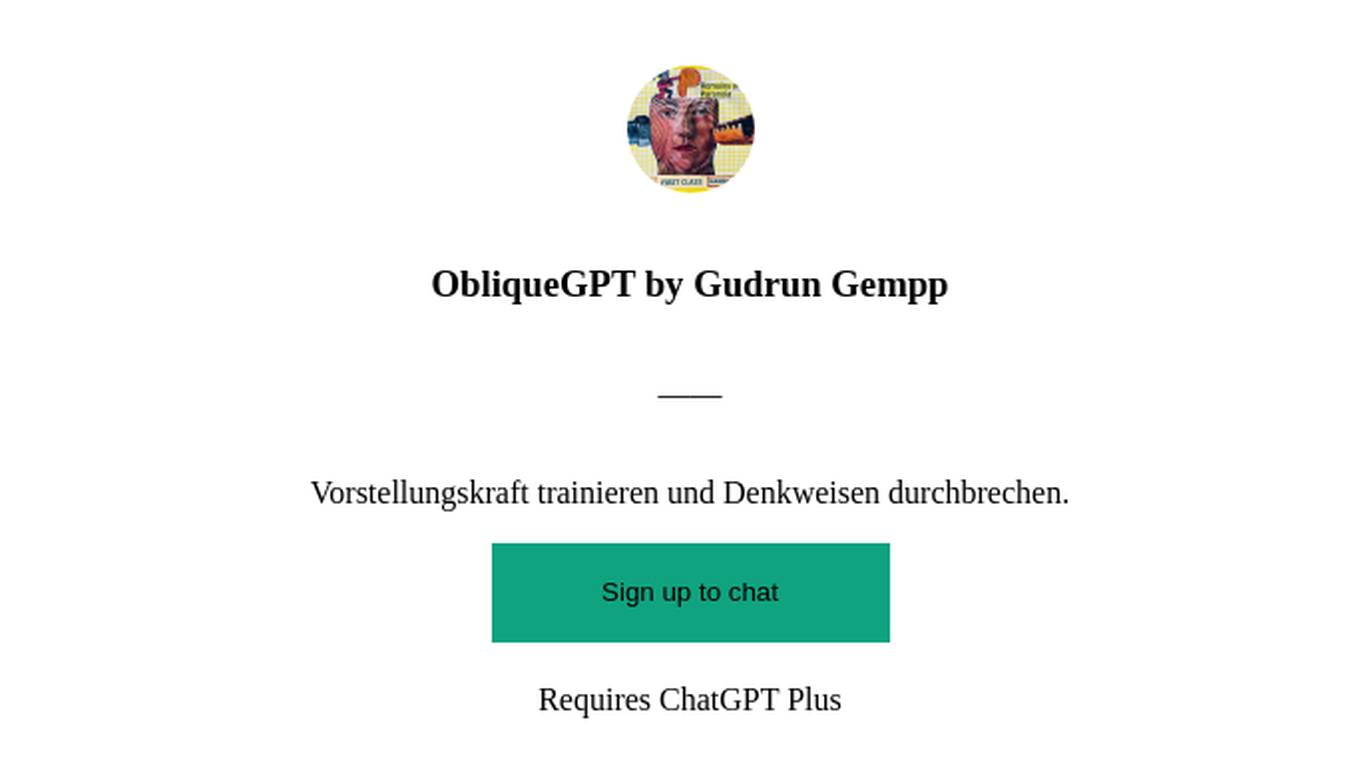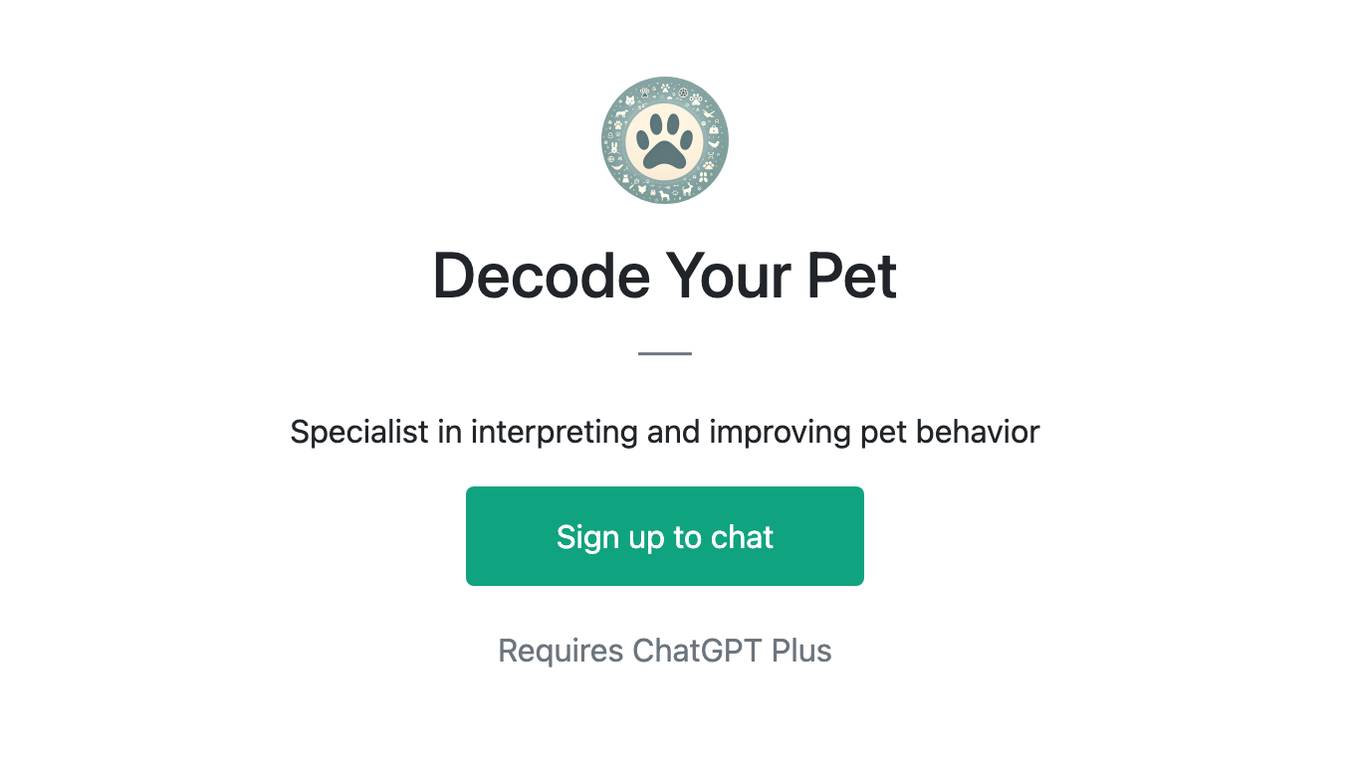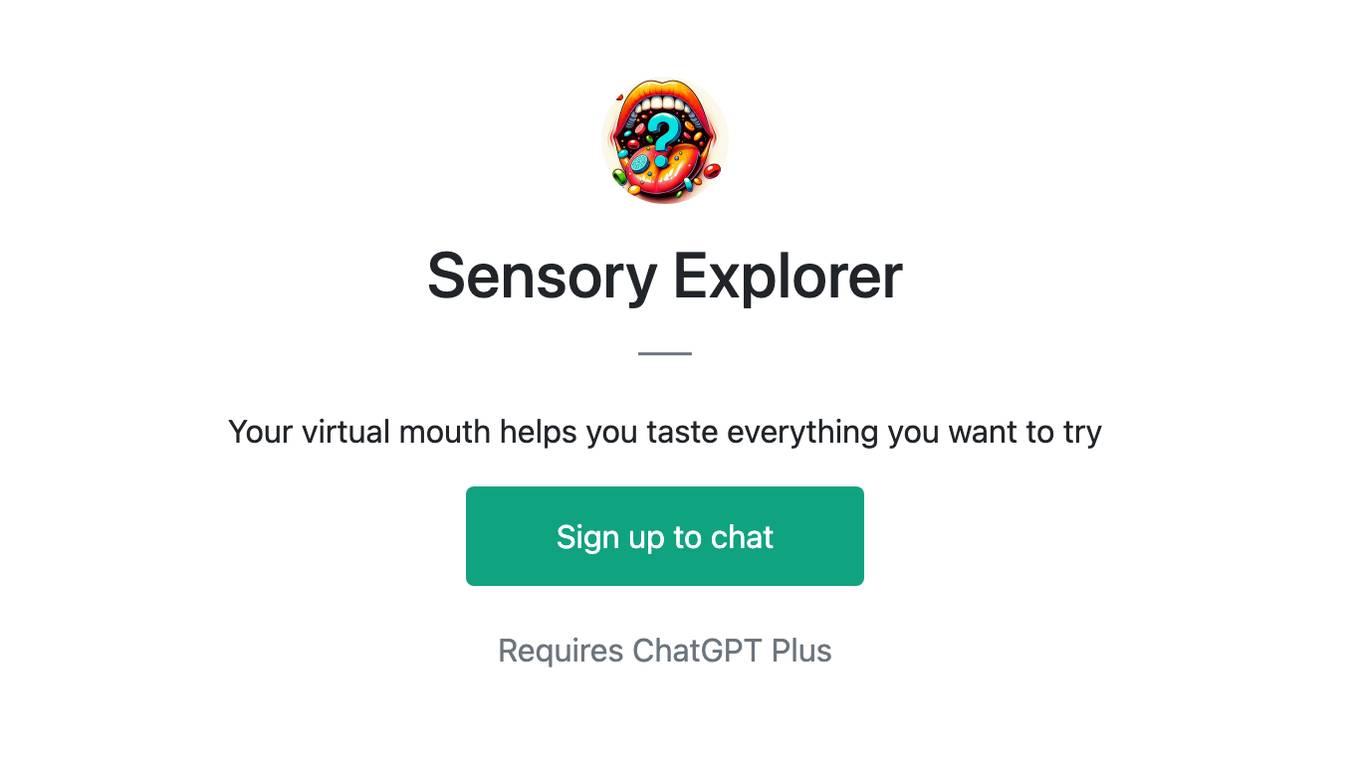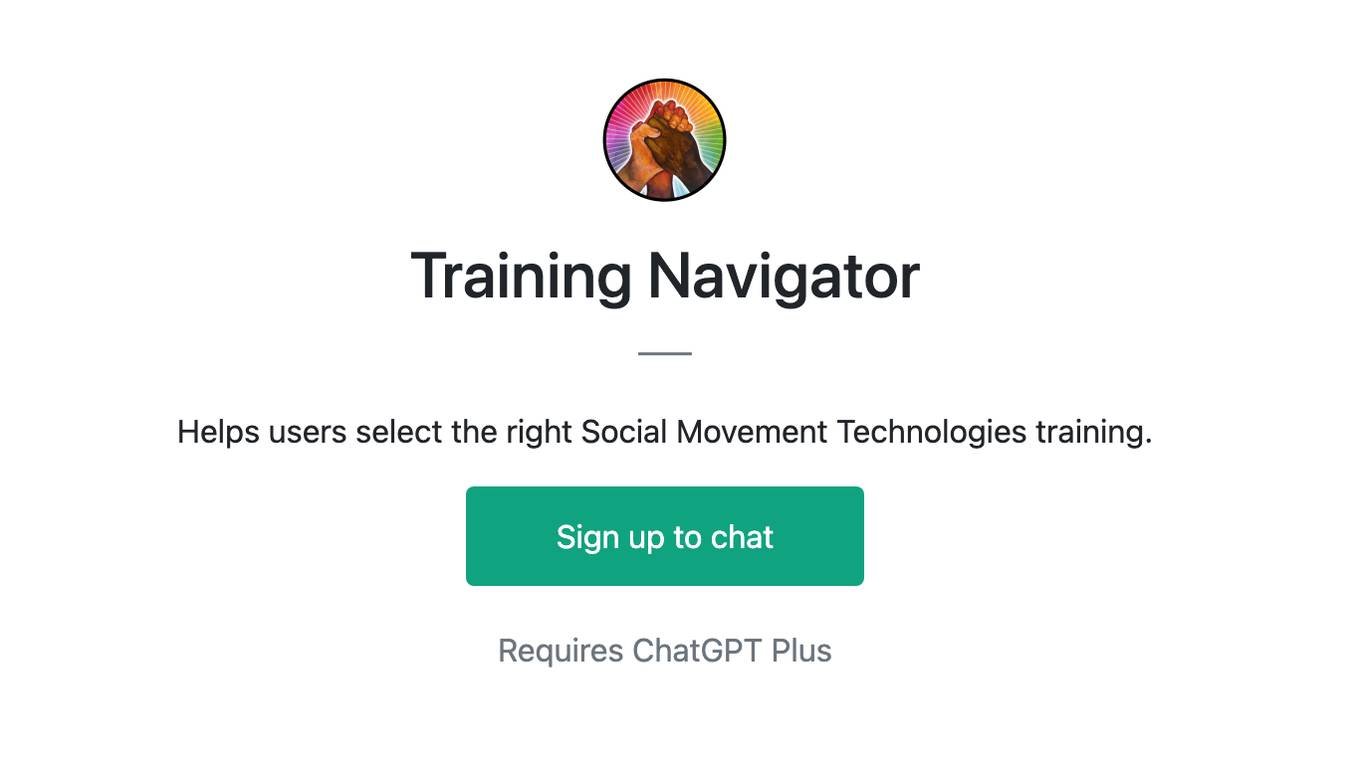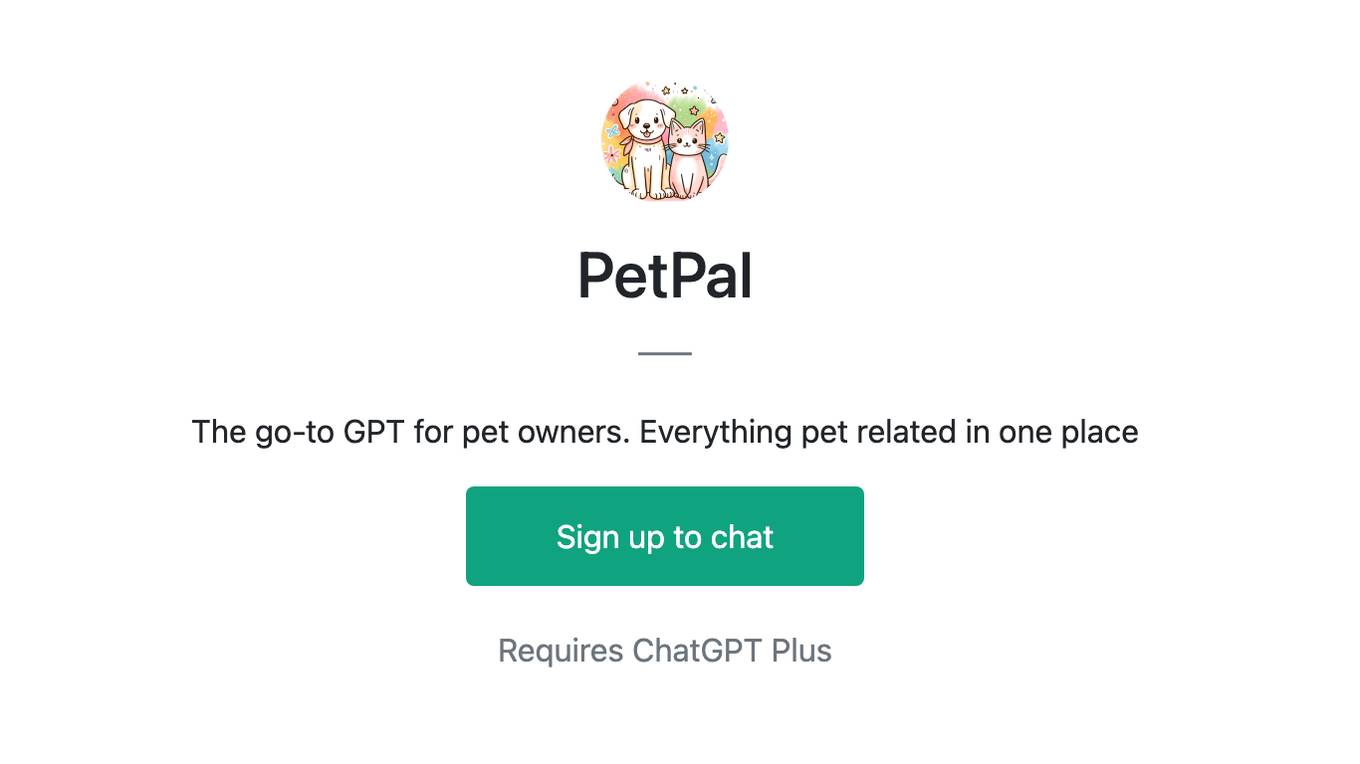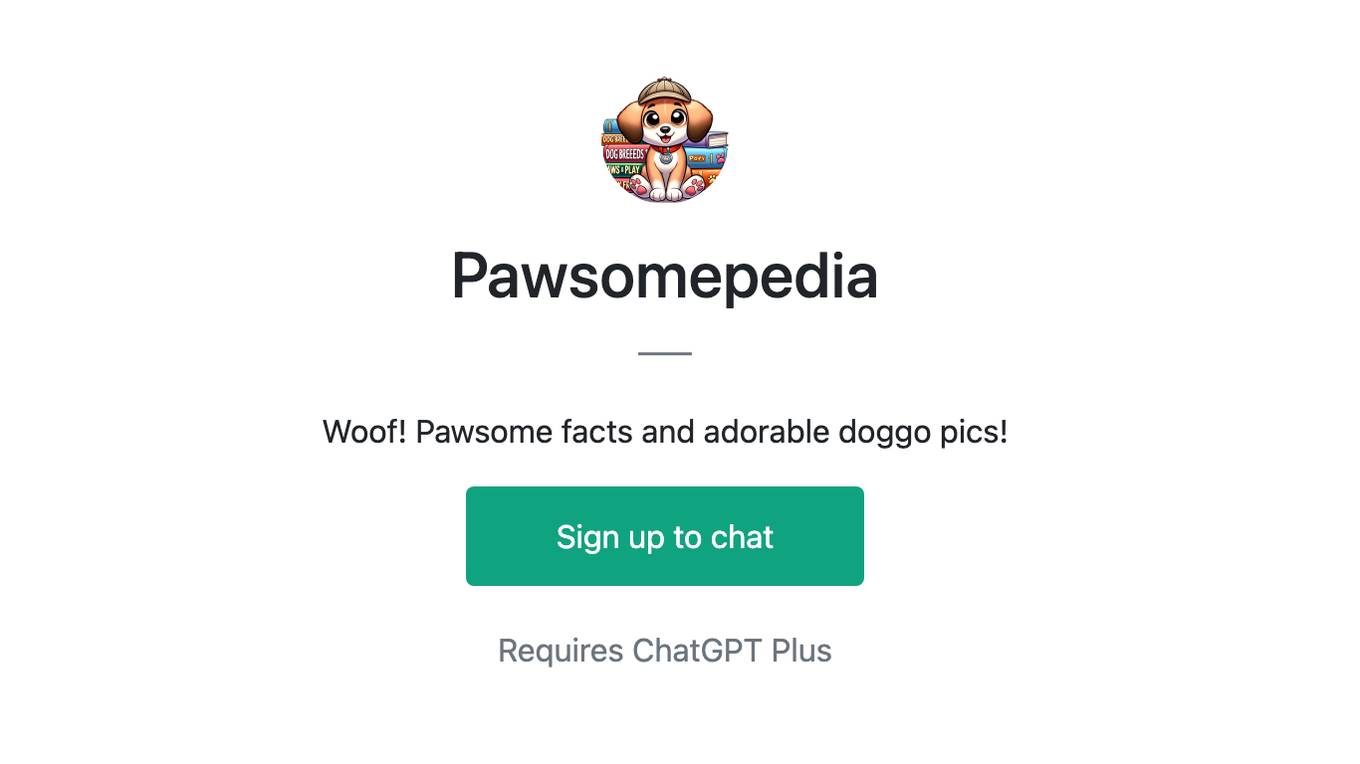Best AI tools for< Train Your Own Models >
20 - AI tool Sites
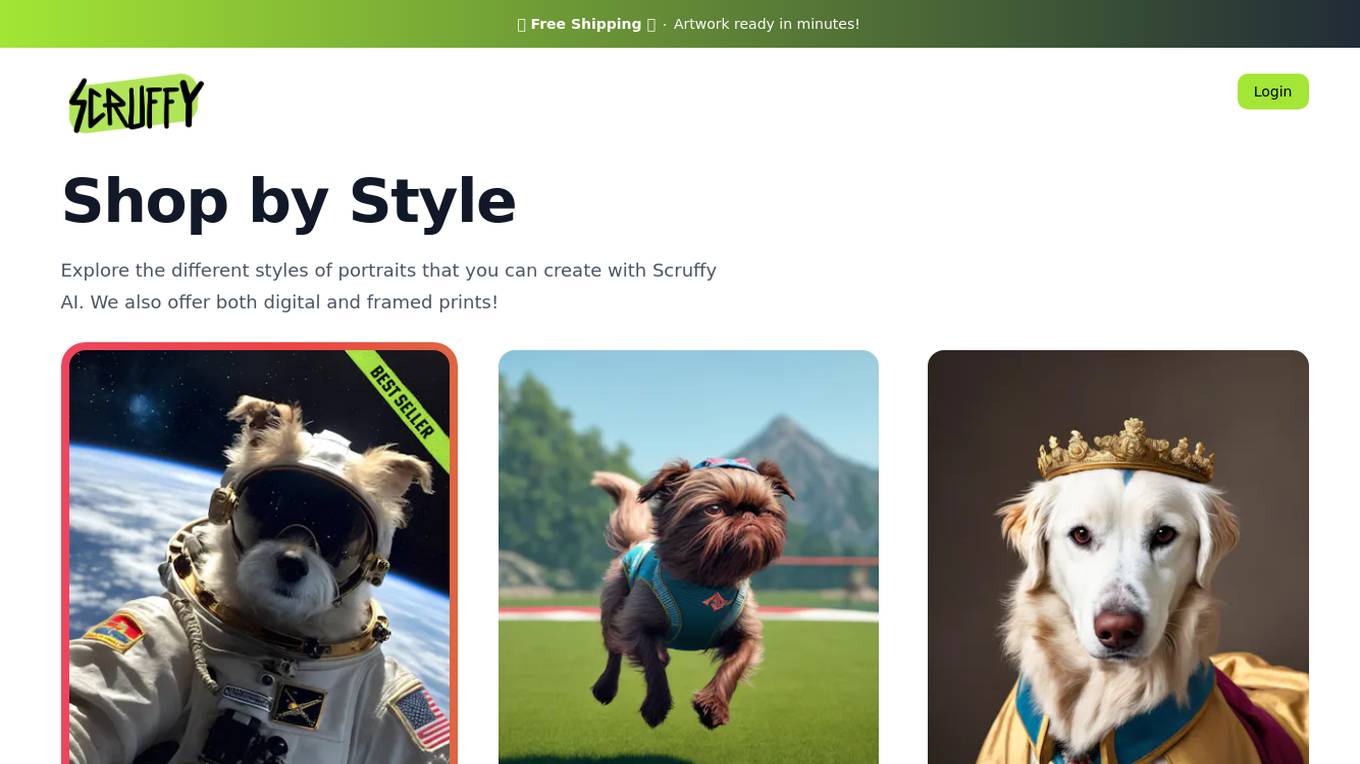
Scruffy AI
Scruffy AI is a website that allows users to create custom dog portraits and gifts. Users can select from a variety of portrait styles, upload pictures of their dogs, and then choose their favorite portrait to download. Scruffy AI also offers both digital and framed prints. The website is easy to use and provides high-quality results. Users can also use Scruffy AI to train their own models to generate new images.

OpenAI Platform
OpenAI Platform is a suite of powerful AI tools that can help you build and deploy AI applications. With OpenAI Platform, you can access state-of-the-art AI models, including GPT-3, Codex, and DALL-E 2. You can also use OpenAI Platform to train your own custom AI models. OpenAI Platform is used by businesses of all sizes to build a wide range of AI applications, including chatbots, language translation tools, and image generators.
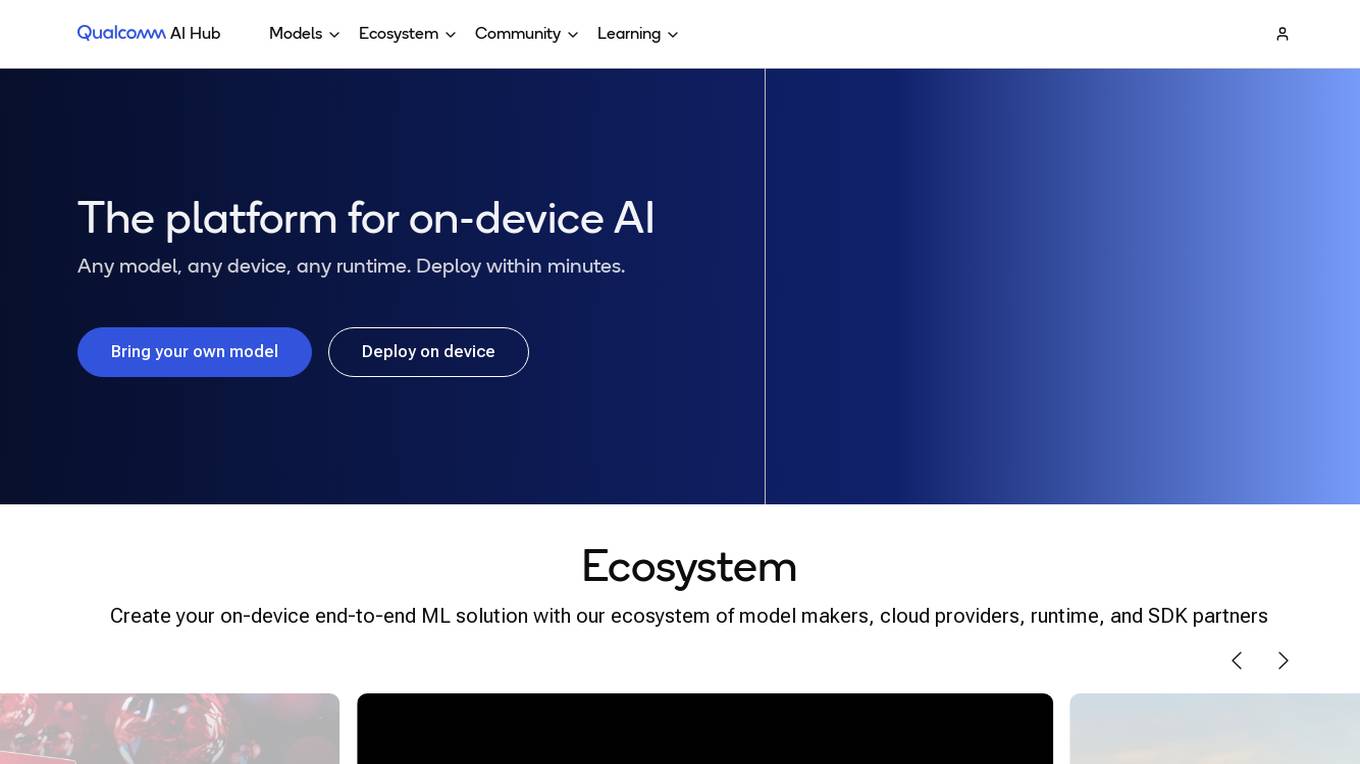
Qualcomm AI Hub
Qualcomm AI Hub is a platform that allows users to run AI models on Snapdragon® 8 Elite devices. It provides a collaborative ecosystem for model makers, cloud providers, runtime, and SDK partners to deploy on-device AI solutions quickly and efficiently. Users can bring their own models, optimize for deployment, and access a variety of AI services and resources. The platform caters to various industries such as mobile, automotive, and IoT, offering a range of models and services for edge computing.
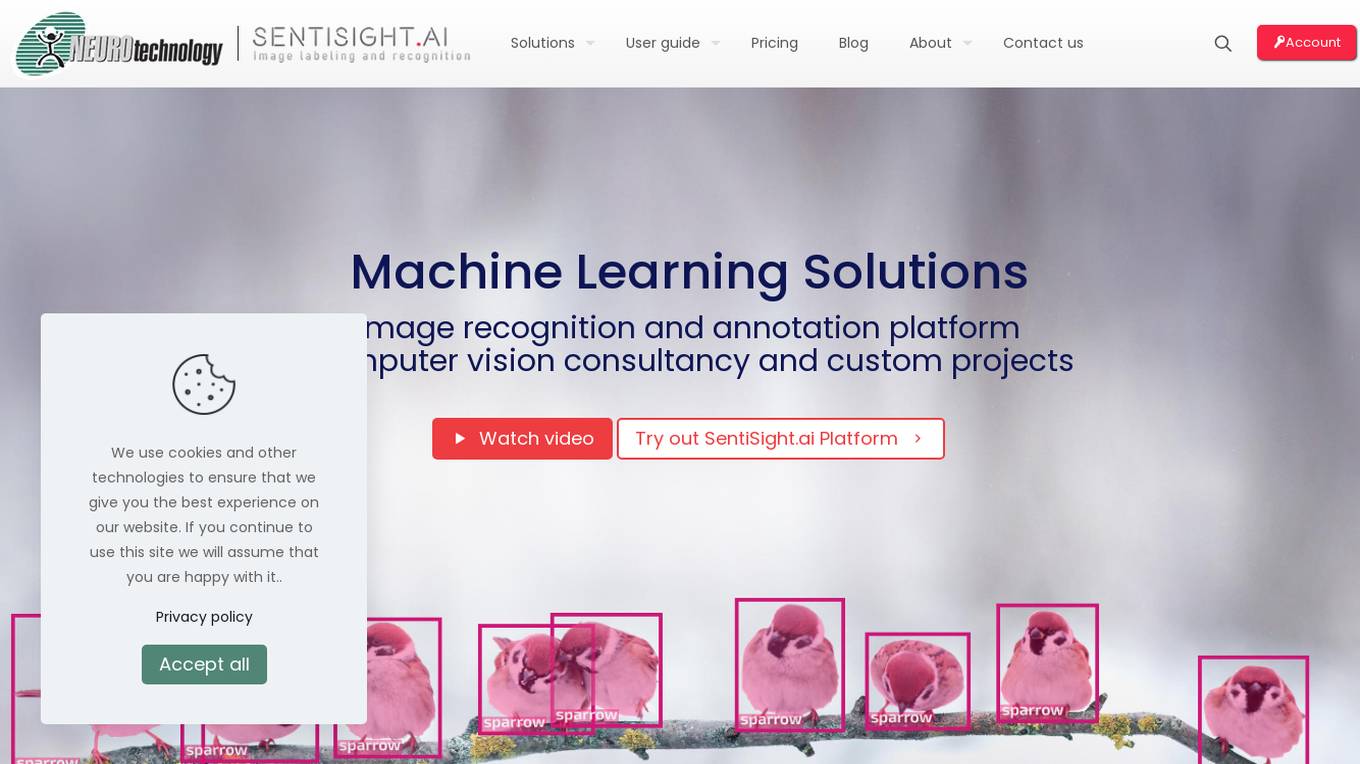
SentiSight.ai
SentiSight.ai is a machine learning platform for image recognition solutions, offering services such as object detection, image segmentation, image classification, image similarity search, image annotation, computer vision consulting, and intelligent automation consulting. Users can access pre-trained models, background removal, NSFW detection, text recognition, and image recognition API. The platform provides tools for image labeling, project management, and training tutorials for various image recognition models. SentiSight.ai aims to streamline the image annotation process, empower users to build and train their own models, and deploy them for online or offline use.
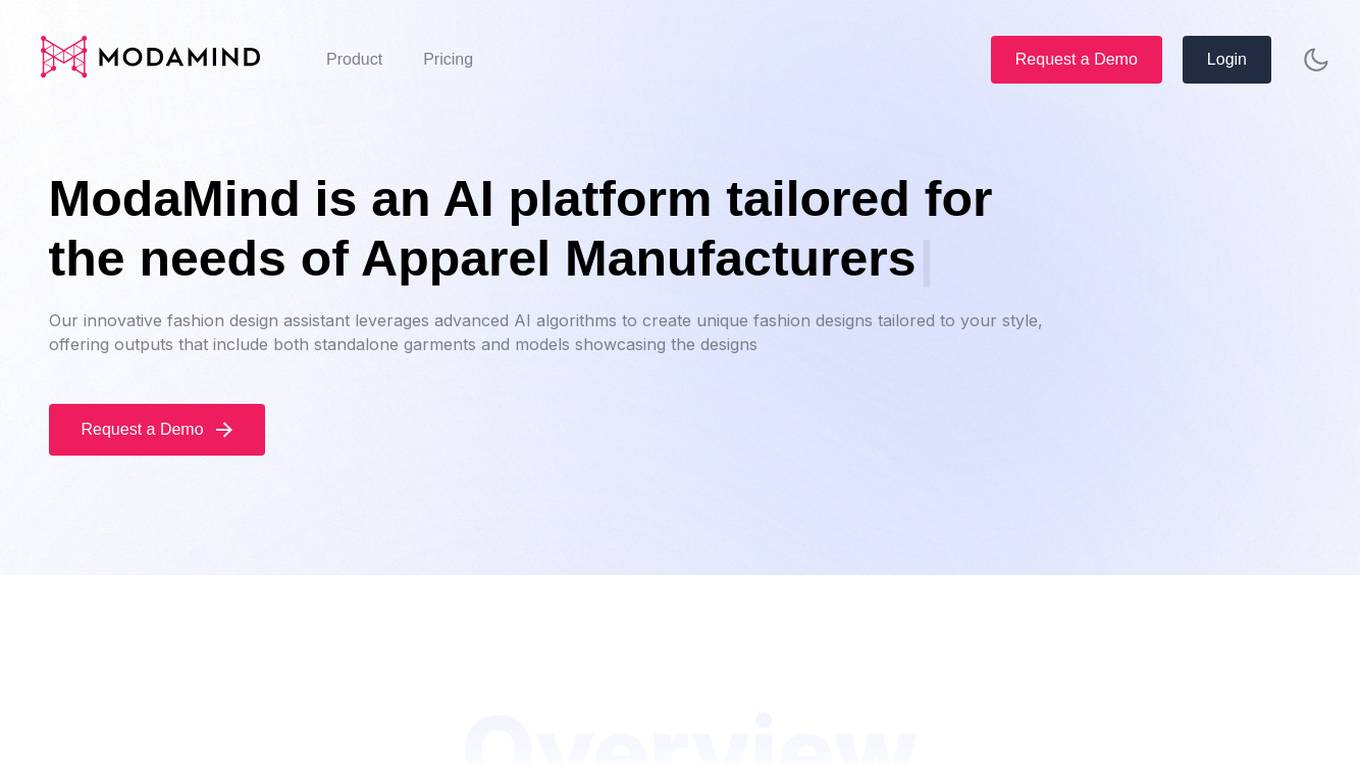
ModaMind
ModaMind is an AI platform designed specifically for fashion designers, offering an innovative fashion design assistant powered by advanced AI algorithms. The platform enables designers to create unique fashion designs tailored to their style, providing endless design ideas from prompts or images. By automating the design ideation process and incorporating the latest trends, ModaMind helps designers accelerate time to market, keep up with recent trends, and meet customer needs. With features like style personalization, AI intelligent garment design, custom visual studio, and the ability to train your own AI model, ModaMind empowers designers to create and innovate with ease.
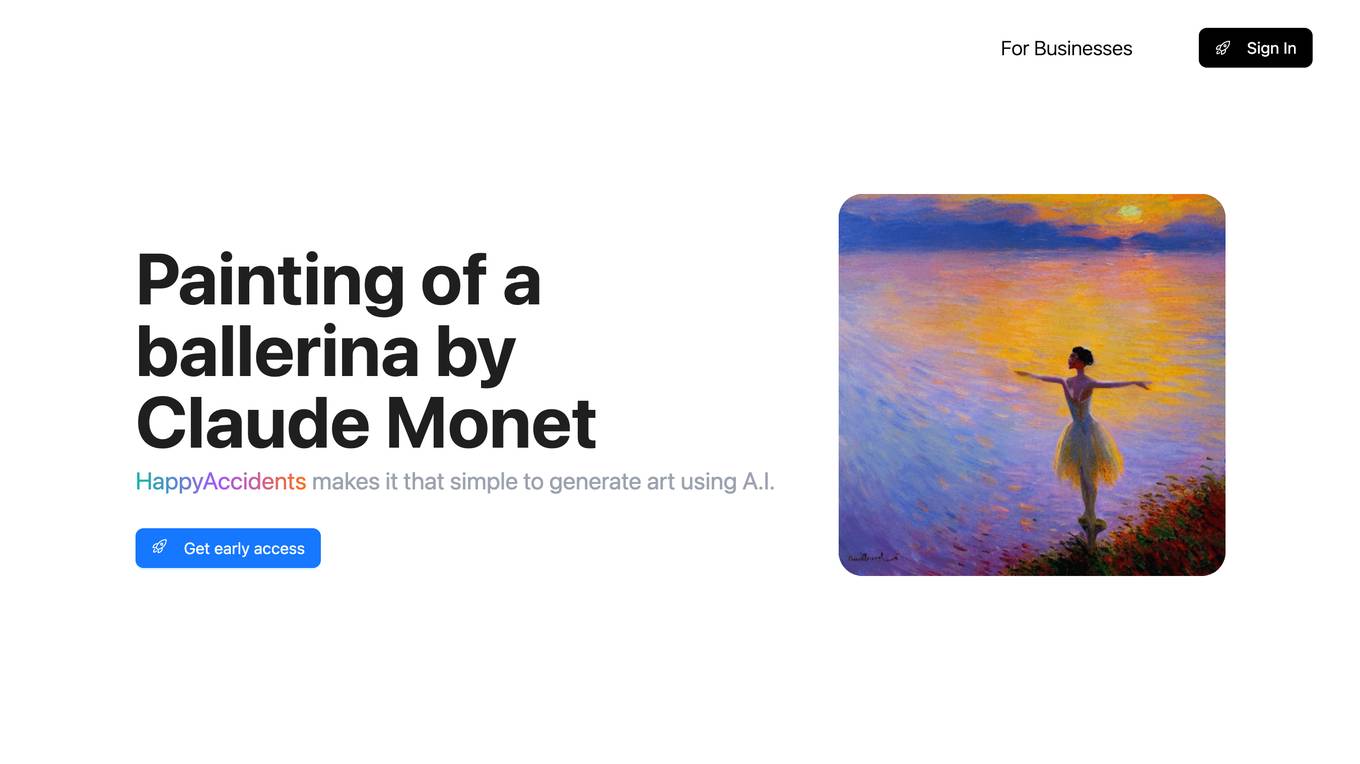
HappyAccidents
HappyAccidents is an AI-powered art generation tool that makes it easy to create stunning images from text prompts. With HappyAccidents, you can generate images from any open-source model, train your own embeddings, and use powerful features like inpainting and upscaling. HappyAccidents is perfect for artists, designers, and anyone who wants to create beautiful images without the hassle of learning complex AI models.
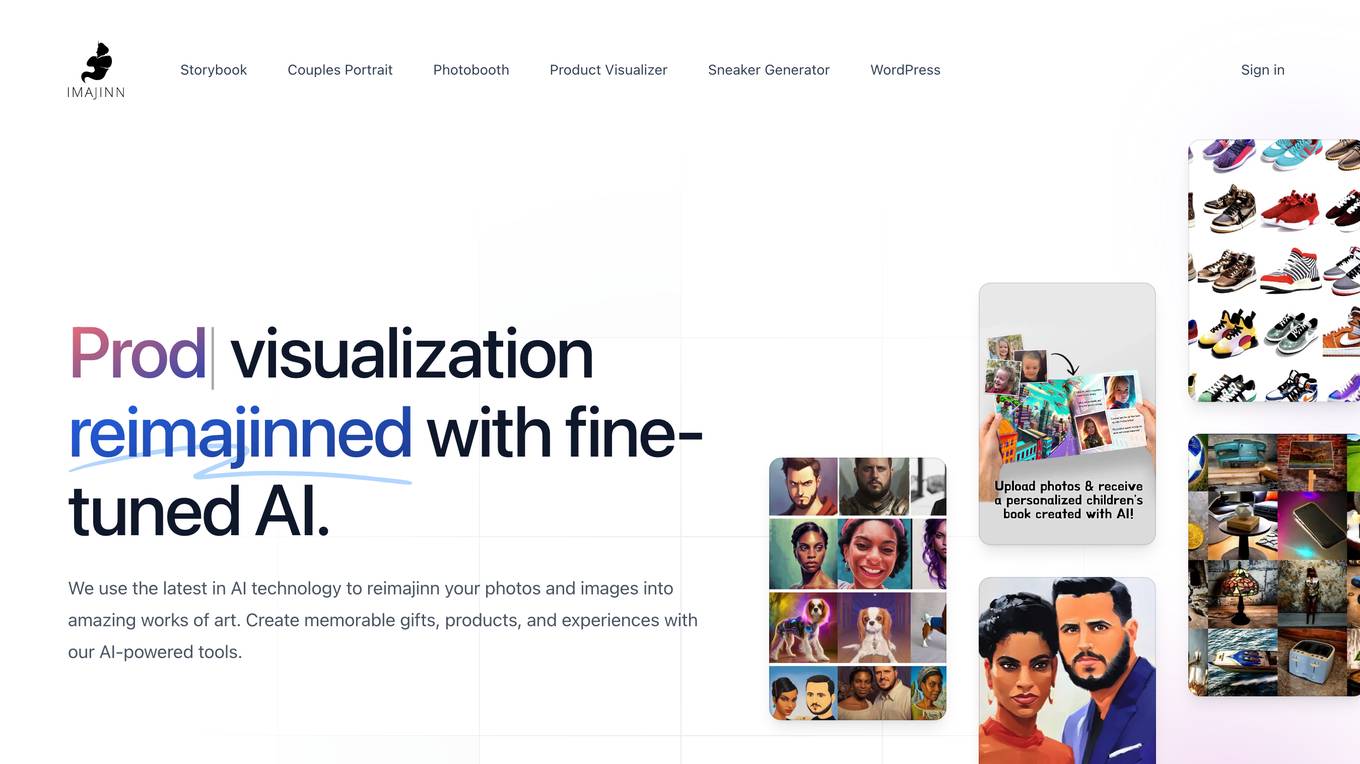
Imajinn AI
Imajinn AI is a cutting-edge visualization tool that utilizes fine-tuned AI technology to reimagine photos and images into stunning works of art. The platform offers a suite of AI-powered tools for creating personalized children's books, printed couples portraits, profile picture photobooth, product photo visualizer, and sneaker generator. Users can also generate concept images for various purposes, such as eCommerce, virtual photoshoots, and more. Imajinn AI provides a fun and creative way to bring ideas to life with high-quality outputs and a user-friendly interface.

DeepMode.ai
DeepMode.ai is a platform that allows users to create their own AI clone models. With DeepMode.ai, users can train AI models on their own data, and then use those models to automate tasks, make predictions, and generate new content. DeepMode.ai is designed to be easy to use, even for users with no prior experience with AI. The platform provides a variety of tools and resources to help users get started, including tutorials, documentation, and a community forum.
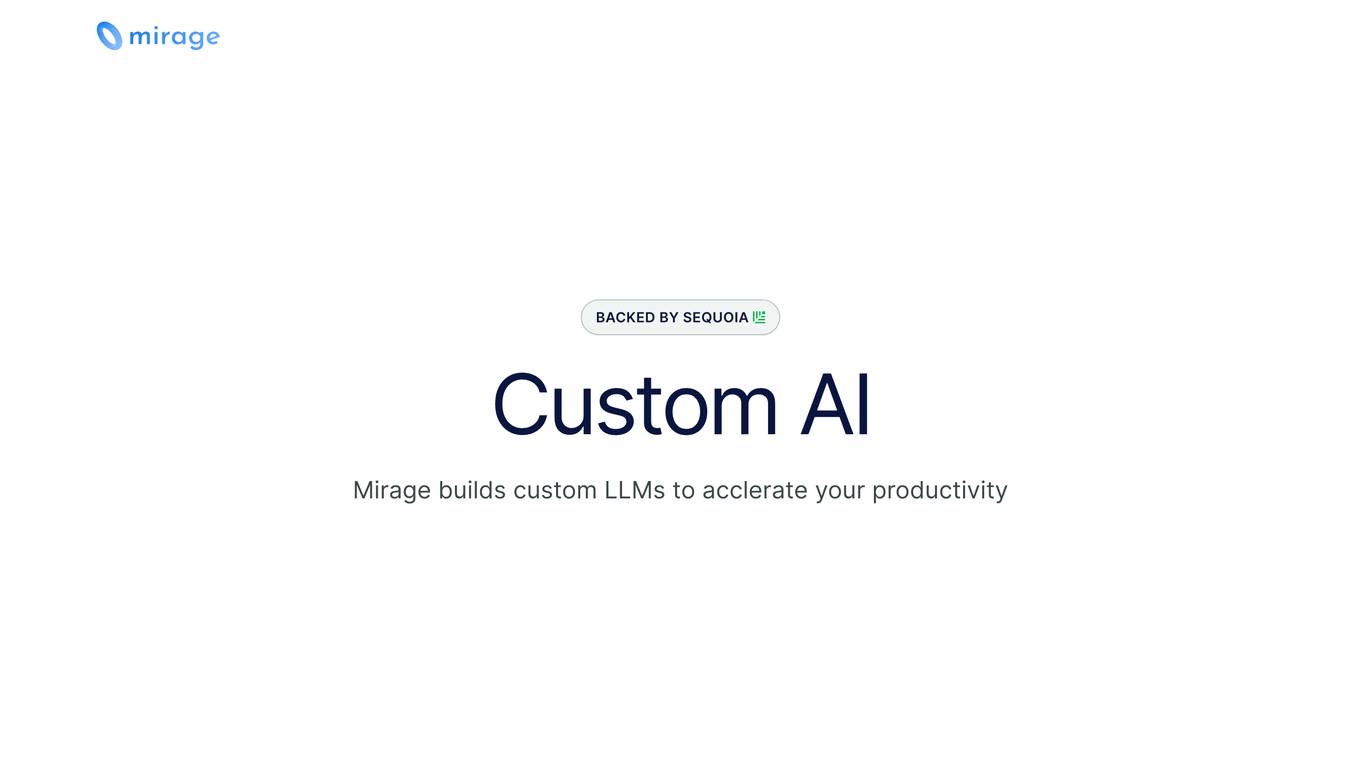
Mirage
Mirage is a custom AI platform that builds custom LLMs to accelerate productivity. It is backed by Sequoia and offers a variety of features, including the ability to create custom AI models, train models on your own data, and deploy models to the cloud or on-premises.
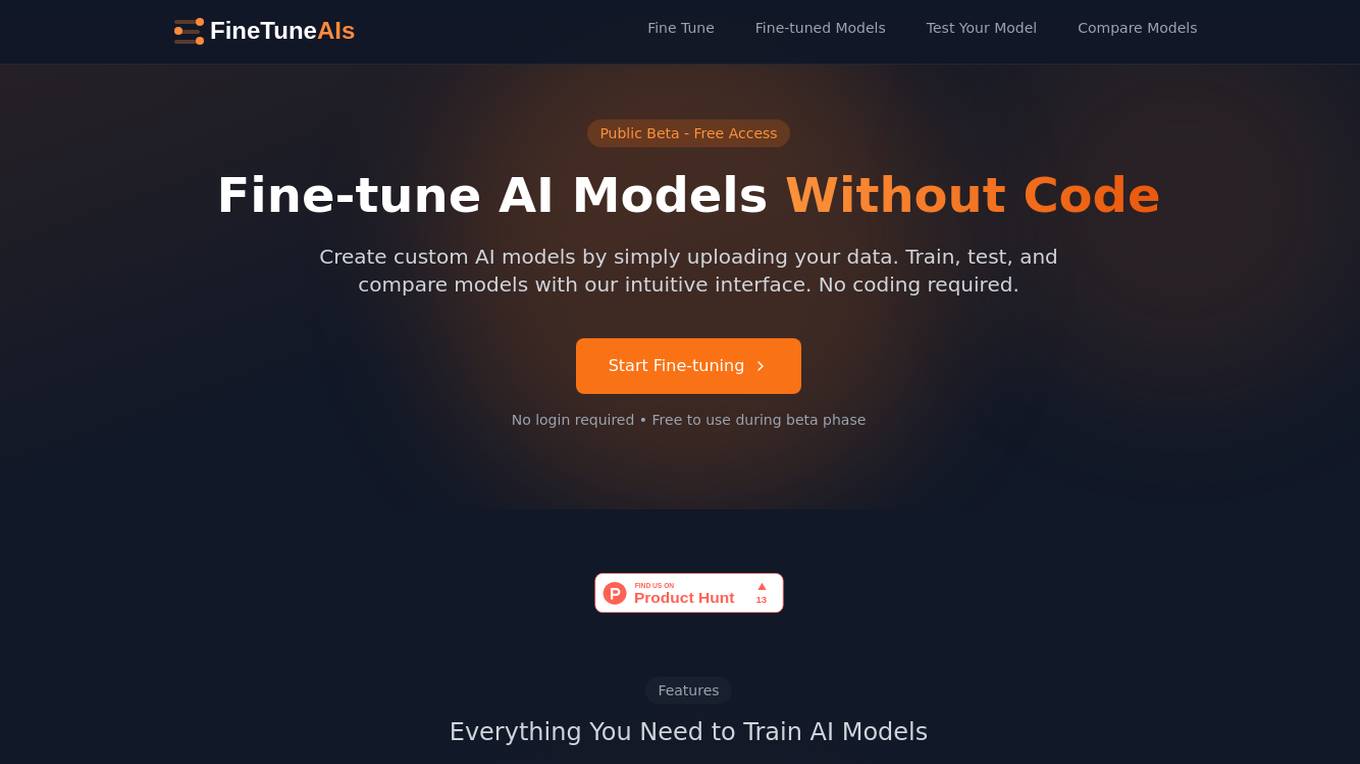
FineTuneAIs.com
FineTuneAIs.com is a platform that specializes in custom AI model fine-tuning. Users can fine-tune their AI models to achieve better performance and accuracy. The platform requires JavaScript to be enabled for optimal functionality.
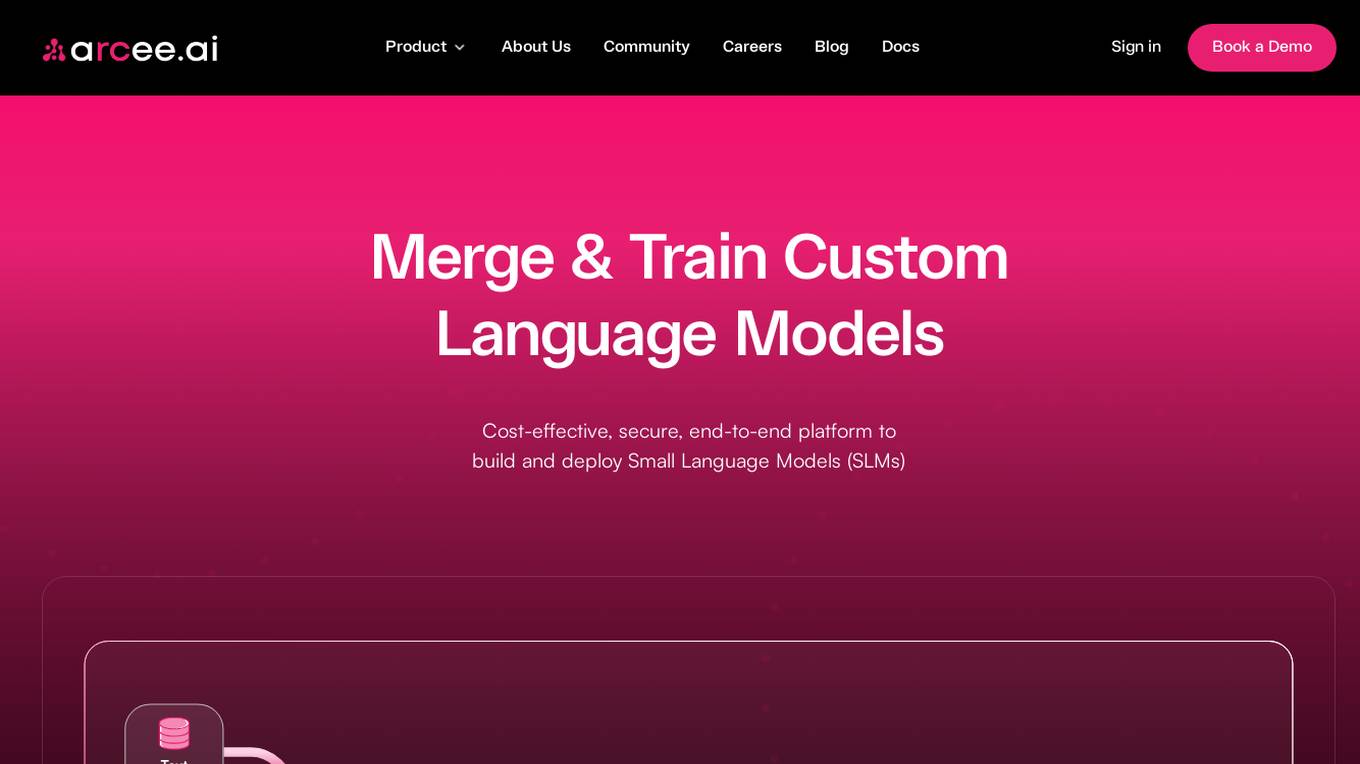
Arcee AI
Arcee AI is a platform that offers a cost-effective, secure, end-to-end solution for building and deploying Small Language Models (SLMs). It allows users to merge and train custom language models by leveraging open source models and their own data. The platform is known for its Model Merging technique, which combines the power of pre-trained Large Language Models (LLMs) with user-specific data to create high-performing models across various industries.

Teachable Machine
Teachable Machine is a web-based tool that makes it easy to create custom machine learning models, even if you don't have any coding experience. With Teachable Machine, you can train models to recognize images, sounds, and poses. Once you've trained a model, you can export it to use in your own projects.
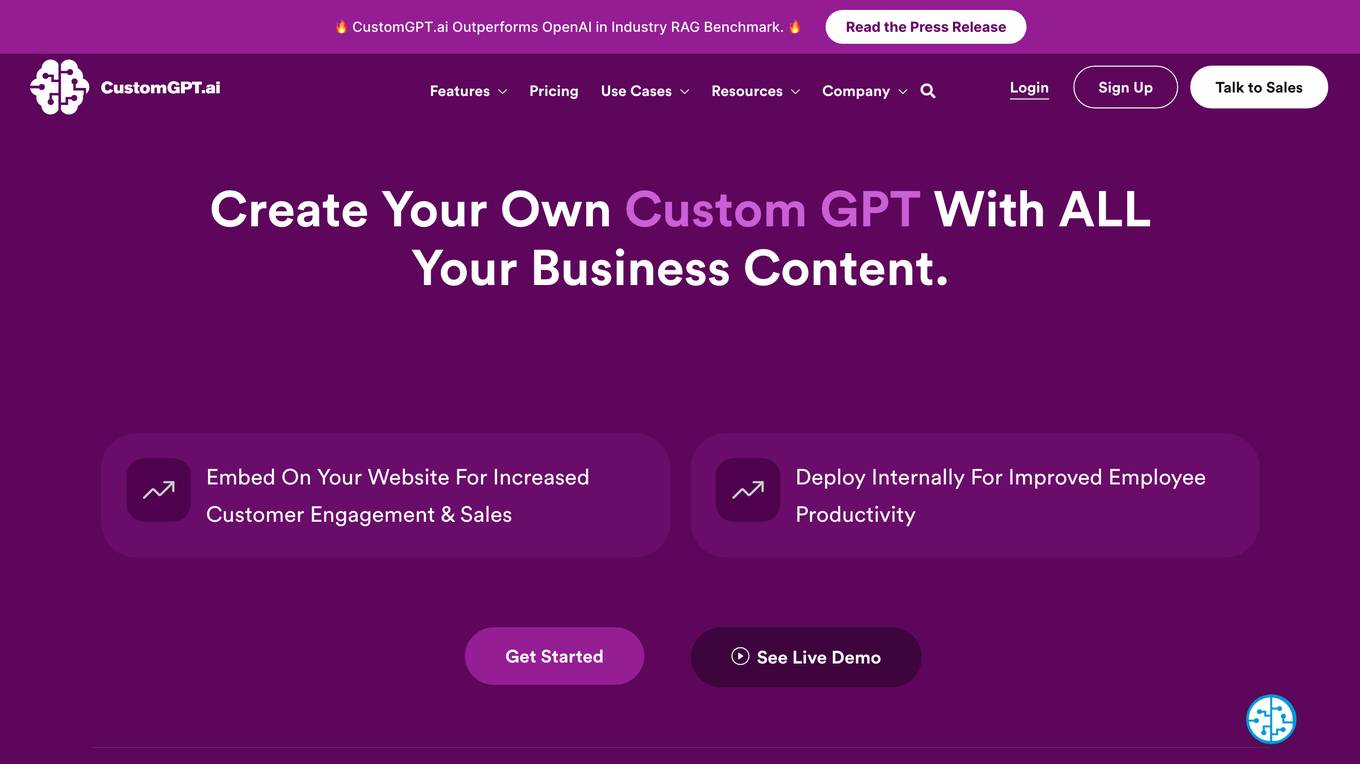
CustomGPT.ai
CustomGPT.ai is a no-code platform that allows businesses to create their own custom ChatGPT chatbots using their own business content. The platform is powered by GPT-4 and provides a range of features, including the ability to upload documents, integrate with other systems, and customize the chatbot's appearance and behavior. CustomGPT.ai is designed to help businesses improve customer service, employee efficiency, and knowledge management.

Alignerr
Alignerr is a platform powered by Labelbox that offers subject matter experts the opportunity to align AI models by creating high-quality data in their field of expertise. The platform aims to build the future of Generative AI by enabling experts to contribute to tasks such as coding improvement, data science synthesis, basic math and chemistry comprehension, and creative writing. Alignerr provides a transparent pay structure and allows individuals to work from home on their own schedule, earning up to $150/hr. Contributors can play a pivotal role in shaping the future of artificial intelligence by working on tasks that involve rating or ranking assignments, open rewrite tasks, and multi-modal assignments. The platform emphasizes the responsible development of AI technologies and offers flexibility for professionals to balance work with personal life effortlessly.

Tess
Tess is the first AI image generator that empowers artists to own their style by creating properly-licensed images. It offers a world-class image editor designed for AI, allowing users to generate art in a consistent visual style. Tess enables artists to create models, edit and customize their generations, and discover how AI can enhance their artistic style. With Tess, users can access copyright-safe generations created by real artists, ensuring ethical AI art practices.
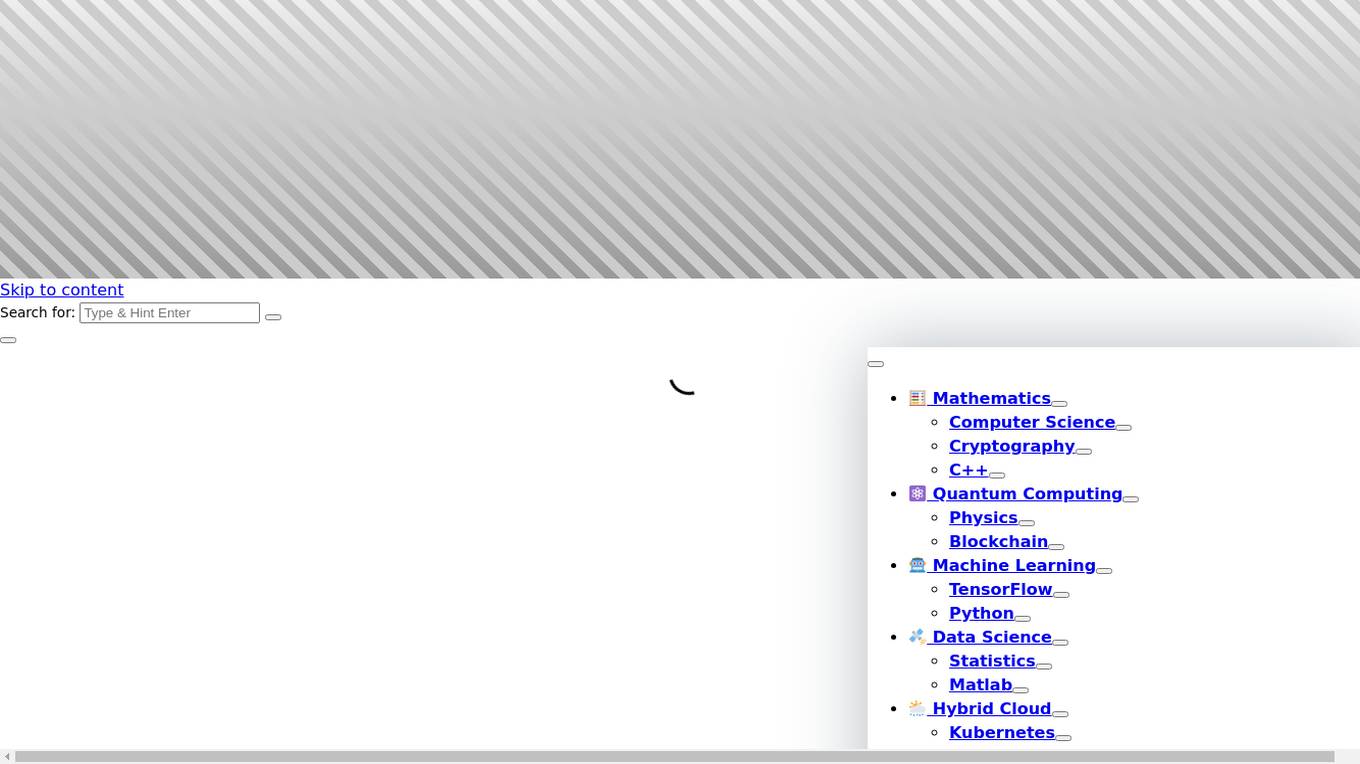
KZHU.ai
KZHU.ai is an online learning platform that offers a variety of courses in artificial intelligence, machine learning, data science, and other related fields. The platform is designed for both beginners and experienced professionals who want to learn more about AI and its applications.

OpenArt
OpenArt is an AI-powered art platform that offers a free AI image generator and editor. It allows users to create images using pre-built models or by training their own models. The platform provides an intuitive AI drawing tool and editing suite to transform artistic concepts into reality. OpenArt stands out for its boundary-free AI drawing, advanced AI art tools, diverse artistic styles, and the ability to train custom AI models. It caters to both amateur and professional artists, offering high-quality art creation and comprehensive support. Users can experiment with various styles, receive detailed feedback, and collaborate on artistic projects through the platform.
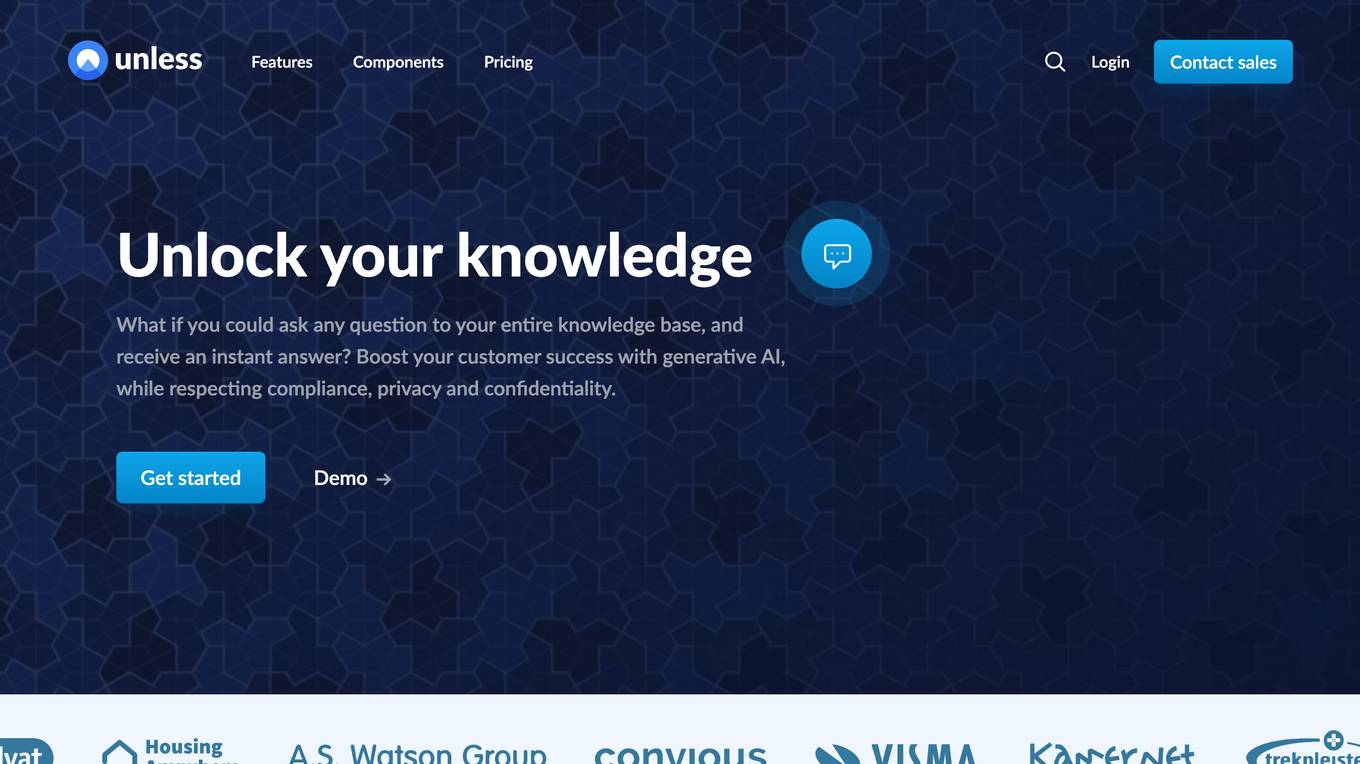
Unless
Unless is a conversational AI platform that helps organizations unlock their knowledge and provide better customer support. With Unless, you can train an AI model with your own knowledge base, documents, or website, and then let your customers or team engage in conversations with the AI through various channels. Unless is designed to be easy to use, even for non-technical staff, and it offers a variety of features to help you get the most out of your AI model.
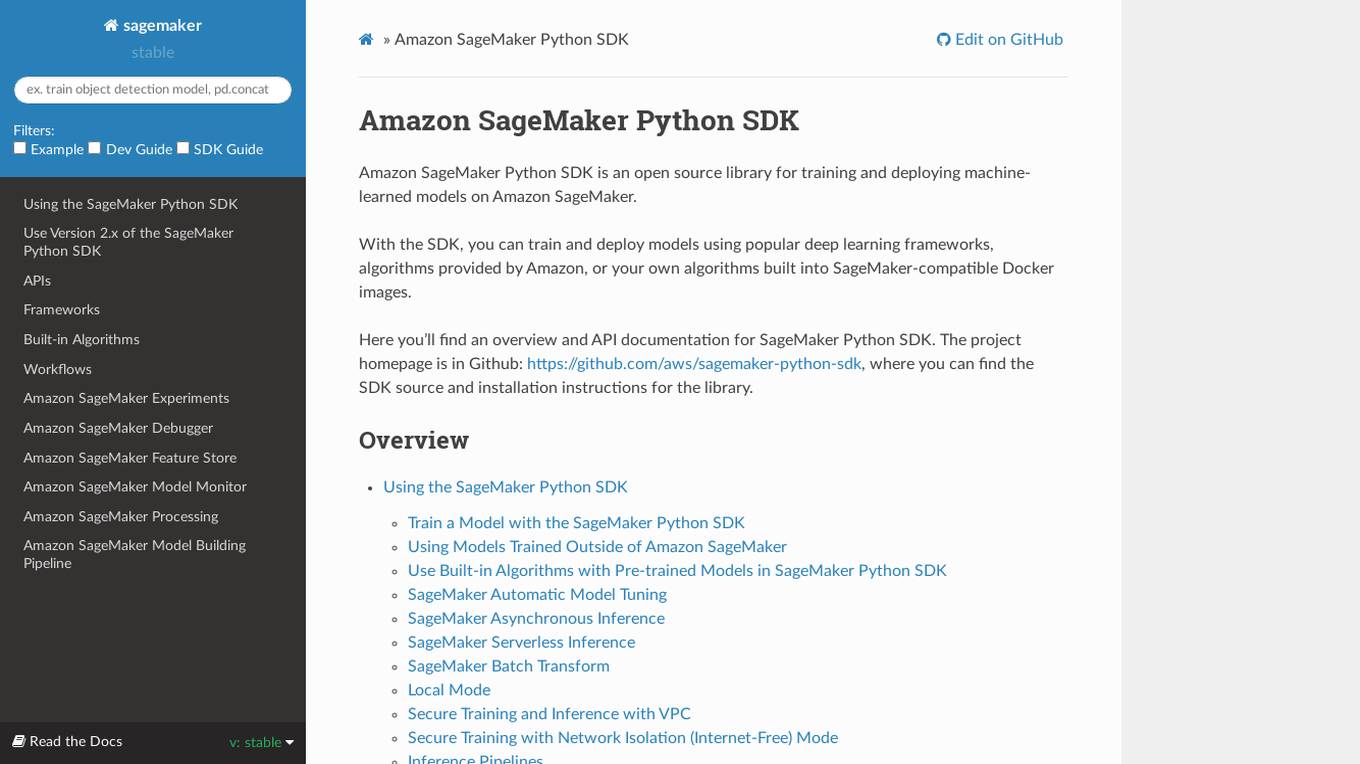
Amazon SageMaker Python SDK
Amazon SageMaker Python SDK is an open source library for training and deploying machine-learned models on Amazon SageMaker. With the SDK, you can train and deploy models using popular deep learning frameworks, algorithms provided by Amazon, or your own algorithms built into SageMaker-compatible Docker images.
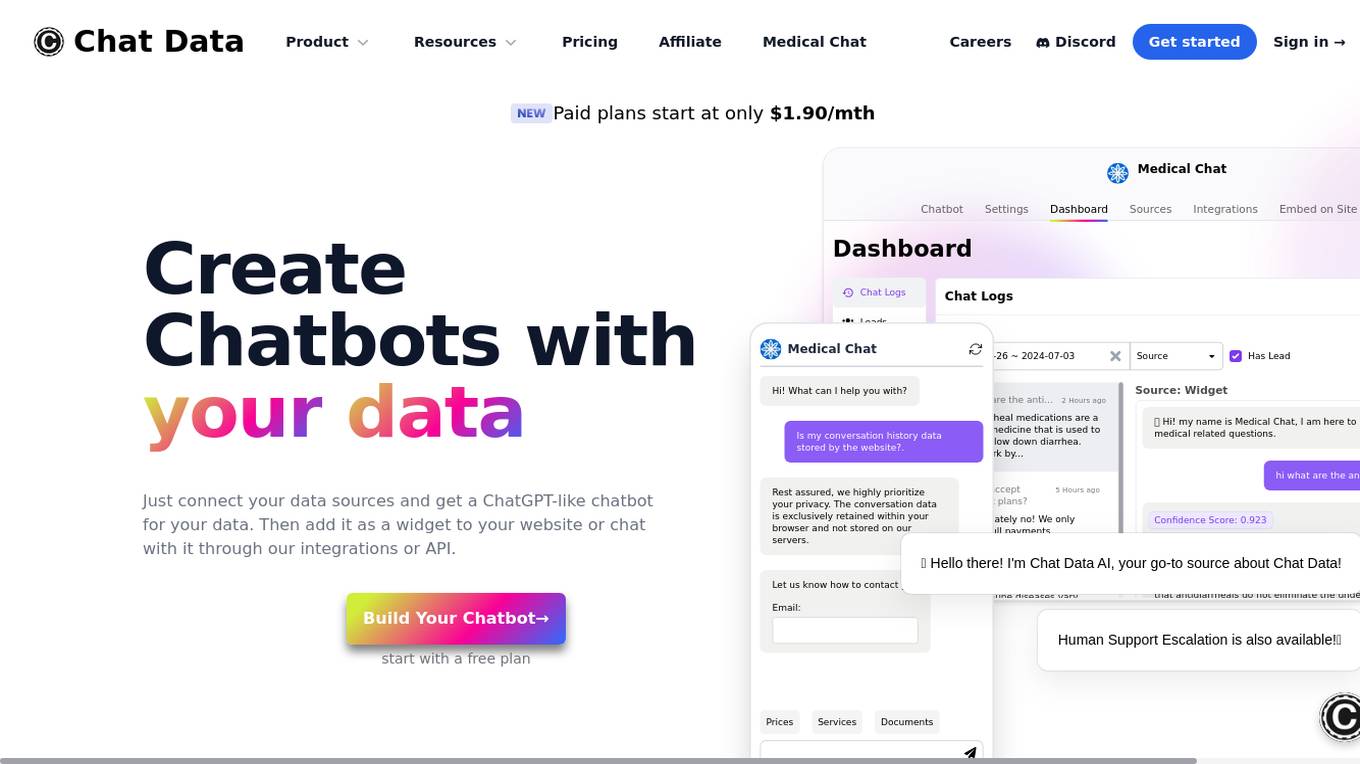
Chat Data
Chat Data is an AI application that allows users to create custom chatbots using their own data sources. Users can easily build and integrate chatbots with their websites or other platforms, personalize the chatbot's interface, and access advanced features like human support escalation and product updates synchronization. The platform offers HIPAA-compliant medical chat models and ensures data privacy by retaining conversation data exclusively within the user's browser. With Chat Data, users can enhance customer interactions, gather insights, and streamline communication processes.
0 - Open Source AI Tools
20 - OpenAI Gpts

How to Train Your Dog (or Cat, or Dragon, or...)
Expert in pet training advice, friendly and engaging.
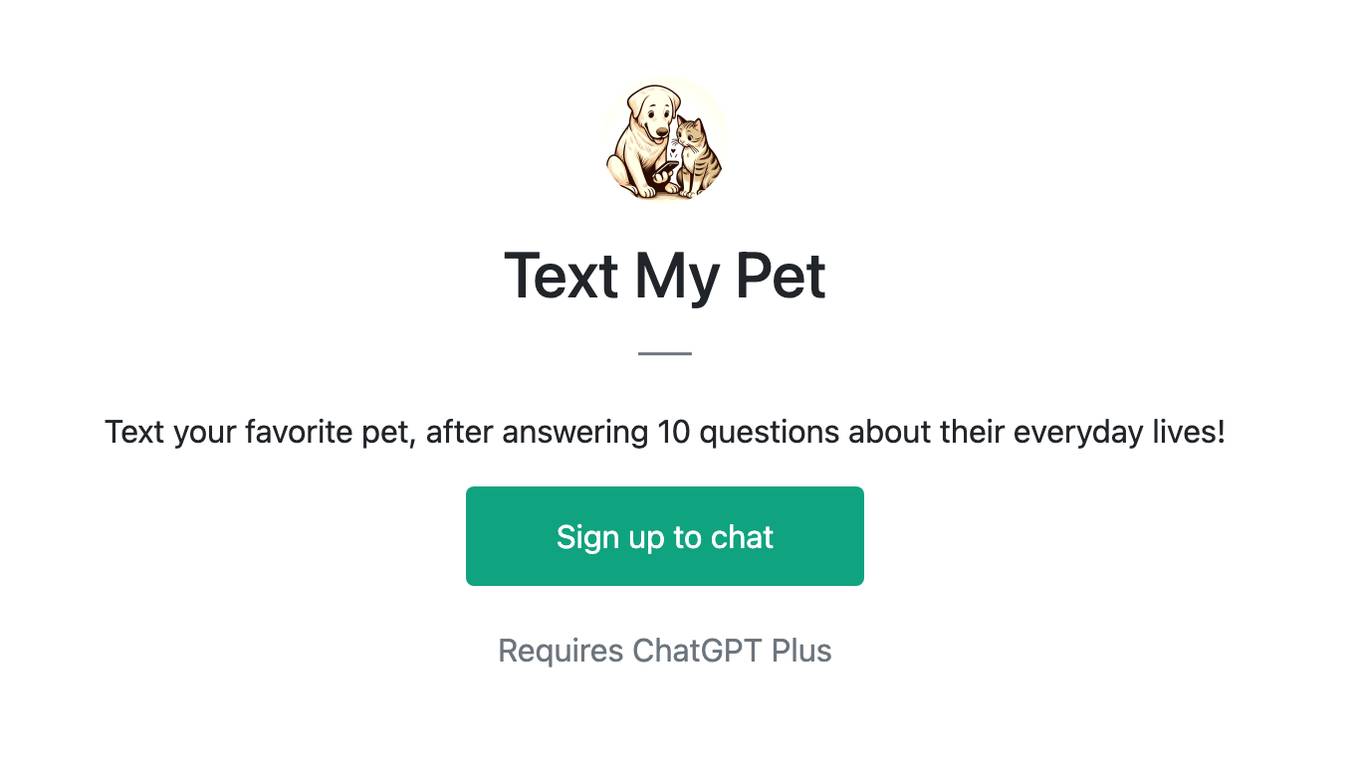
Text My Pet
Text your favorite pet, after answering 10 questions about their everyday lives!

Golden Retriever Training Assistant and Consultant
Golden Retriever training expert providing advice and tips
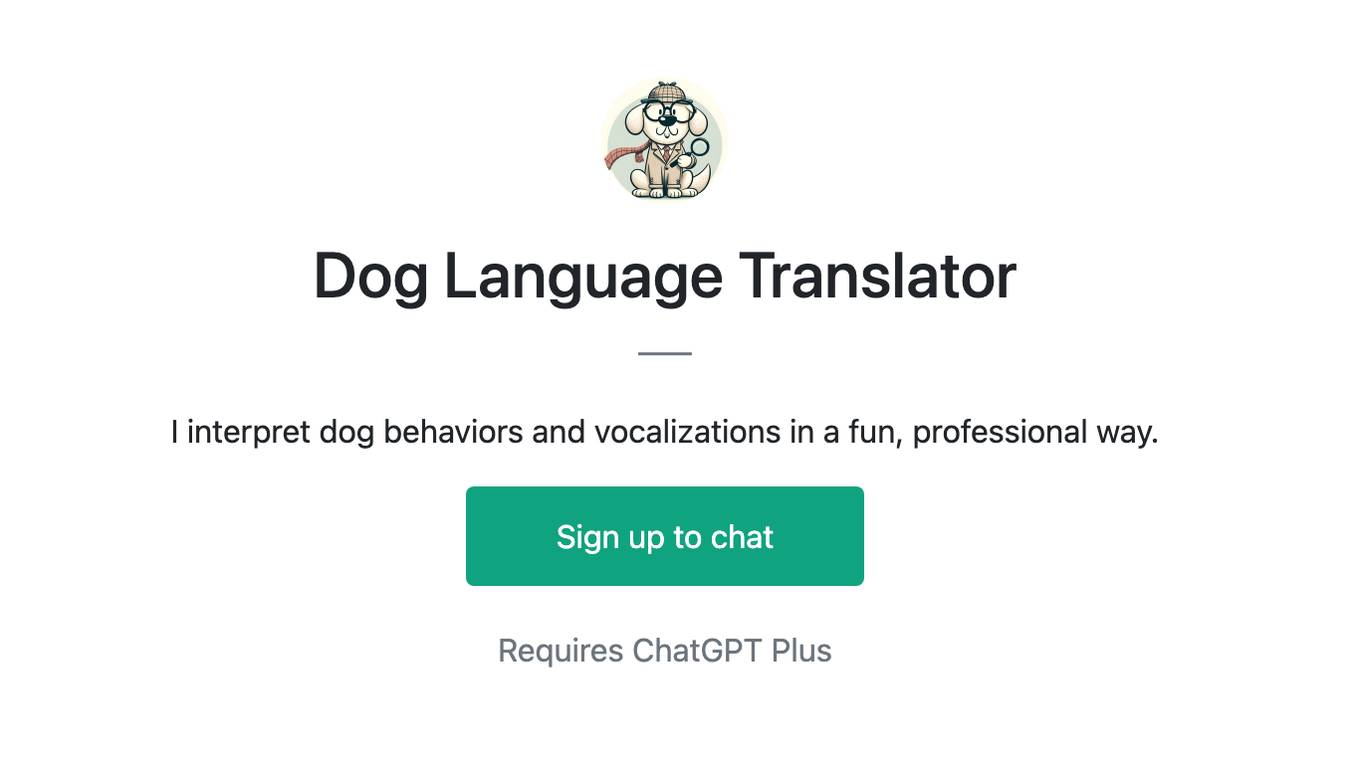
Dog Language Translator
I interpret dog behaviors and vocalizations in a fun, professional way.
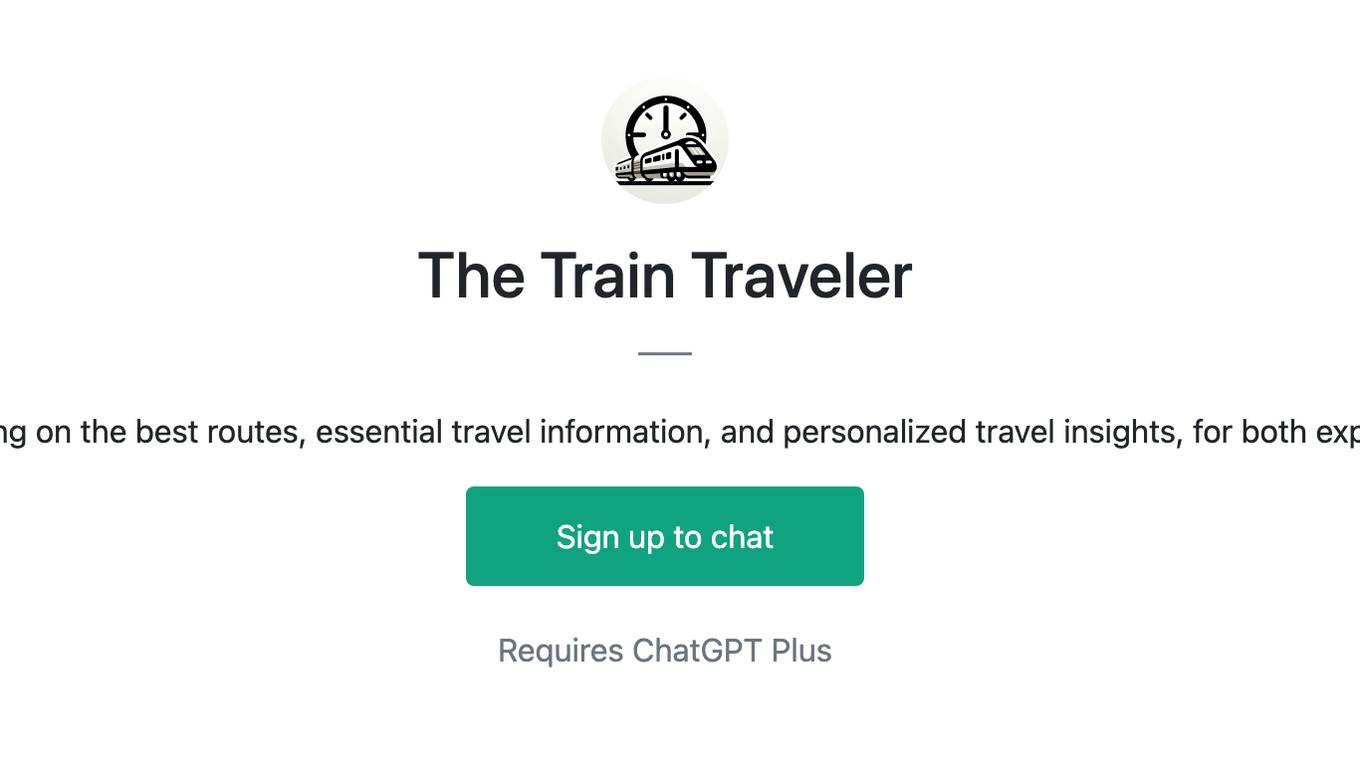
The Train Traveler
Friendly train travel guide focusing on the best routes, essential travel information, and personalized travel insights, for both experienced and novice travelers.
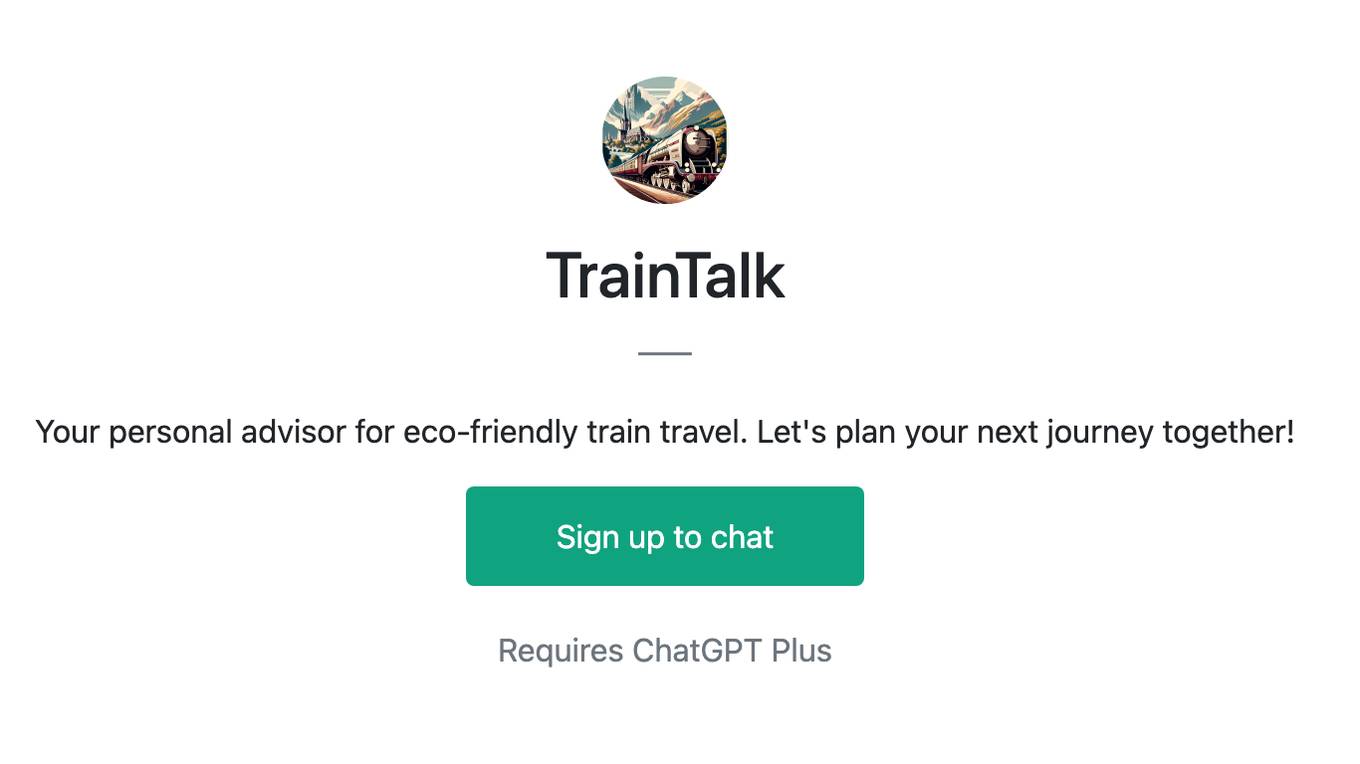
TrainTalk
Your personal advisor for eco-friendly train travel. Let's plan your next journey together!

Pytorch Trainer GPT
Your purpose is to create the pytorch code to train language models using pytorch

